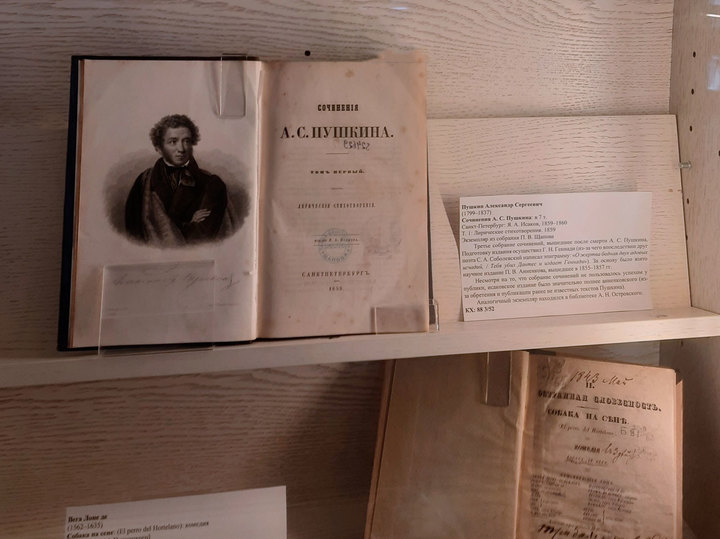“Deep understanding of Russian life” by Alexander Ostrovsky was shown in the historical library
[ad_1]
An exhibition dedicated to the 200th anniversary of the playwright has opened
The State Public Historical Library is hosting the Deep Understanding of Russian Life exhibition dedicated to the 200th anniversary of Alexander Ostrovsky. The exposition is built in such a way that the whole world of dramaturgy and literature of that era seems to revolve around one Ostrovsky.
Nothing can tell about an educated person better than his personal library. One volume is from the collected works of Pushkin, and the other is a classic of foreign drama – Shakespeare’s King Lear: this is a creative support. Here is an album from an art and industrial exhibition, which speaks of Ostrovsky’s involvement in modern social life. From small details – the writer’s personal books – the image of the playwright is formed at the exhibition and his interests are guessed. But the exposition presents only a small part of Ostrovsky’s library.

Here are rare lifetime editions of the playwright’s works. They are from the private libraries of A.P. Bakhrushin and P.V. Shchapov – today it is difficult to find publications from personal collections that were released during the life of the playwright. Around Ostrovsky’s published plays are photographs of those who played his characters on stage. It seems that these were Katerina, Varvara, Kudryash, Kabanova in the imagination of Ostrovsky and the viewer of that era. Now The Thunderstorm is also being played, but it will no longer be closer and more understandable in time to modern actors and directors than to those who staged and played it in the 19th century.

The purpose of the exhibition is to immerse in the context: in the era, personal interests and life circumstances of the writer and his contemporaries. Hence the name, which expands the horizon around one of the main playwrights of the “golden age” of Russian literature and gives a deep understanding of Russian life.
[ad_2]
Source link






